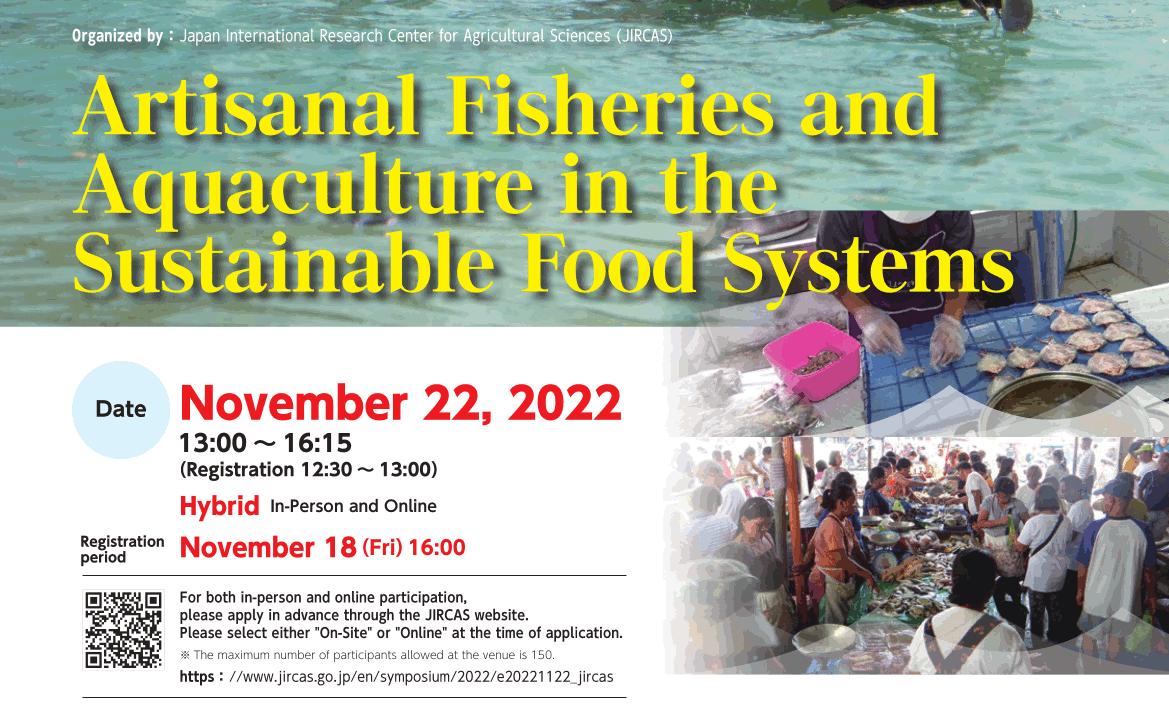
The global food systems have faced an unprecedent challenge to ensure food and nutrition security for the 10 billion people projected by 2050, while mitigating climate change and avoiding biodiversity loss, and without leaving anyone behind. In this trajectory, the potential of ‘blue foods‘— animals, plants, and algae harvested from freshwater and marine environments — has been increasingly attracting global attention in realizing food systems transformation towards achieving both human and planetary health.
Blue foods, with their enormous diversity in species, can contribute to the diversification of diets rich in macro- and micronutrients. Furthermore, fisheries and aquaculture can provide proteins more efficiently than other food groups, with far-less per unit-weight greenhouse gas emissions than land-based animals. In building the sustainable food systems, fisheries and aquaculture are expected to play an important role.
At the same time, blue foods have been a culturally essential component of healthy diets in which small-scale fishers and artisanal aquaculture employees play a critical role. The United Nations General Assembly has declared 2022 the International Year of Artisanal Fisheries and Aquaculture (IYAFA 2022), expecting positive cascading effects by highlighting their importance in the sustainable food systems transformation.
In Asia, which accounts for nearly 75% of the global supply of fishery and aquaculture products, the majority of players are small-scale artisanal fishers, fish farmers, and aquaculture workers. Therefore, the promotion of the sector can greatly contribute to poverty alleviation and economic development. In turn, artisanal fisheries and aquaculture are primarily bounded by local environment, thus facing locally specific technical challenges to which no single solution is applied. In order to build sustainable and resilient fisheries and aquaculture sector for food and nutrition security without leaving anyone behind, all the stakeholders should be able to share their experiences and lessons to accelerate science, technology and innovation.
Among the Japanese agriculture, forestry, and fishery research communities, JIRCAS has played a central role in international collaboration with special focus on developing regions, thus contributing to the achievement of SDGs. One of our research projects promotes the development and dissemination of sustainable aquaculture technologies in the tropical regions based on the eco-system approach. In addition, we have implemented the deployment of shrimp seed production technology towards the realization of an environment-friendly and complete closed-cycle aquaculture system.
As a follow up of the 2021 UN Food Systems Summit, and at the occasion of IYAFA 2022, the JIRCAS International Symposium 2022 aims at providing a forum with national and international research and academic communities to discuss opportunities and challenges for a resilient, efficient and sustainable fisheries and aquaculture sector. In particular, we hope that this symposium will bring new insights and identify strategic areas of STI for international collaboration to promote both sustainability and productivity of the sector.
More details: https://www.jircas.go.jp/en/symposium/2022/e20221122_jircas